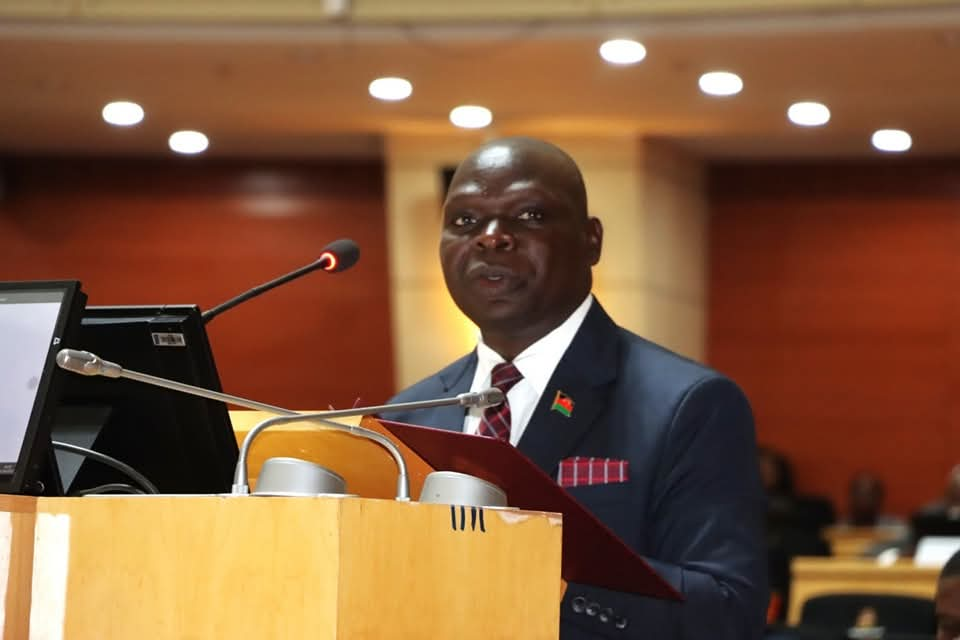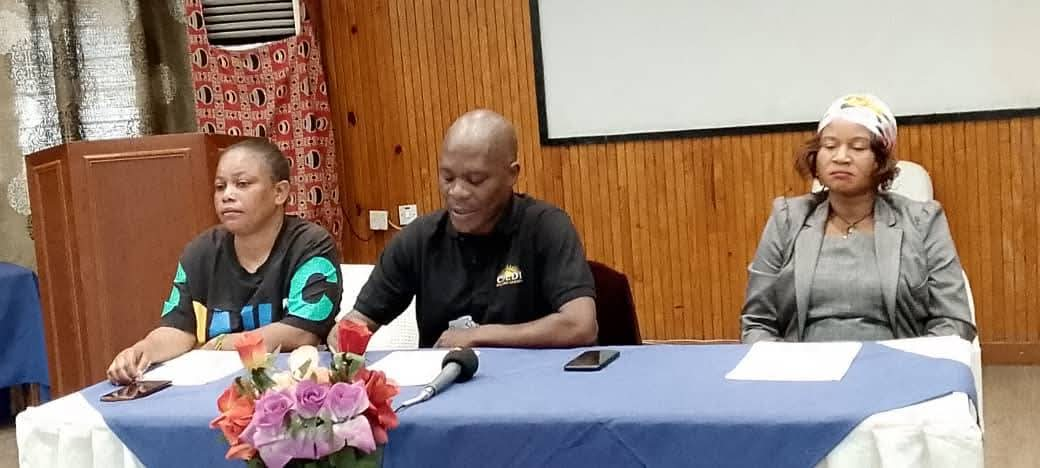By Burnett Munthali
On Friday, 28th February 2025, the Minister of Finance and Economic Affairs, Honourable Simplex Chithyola Banda, presented the 2025/2026 Budget Policy Statement in the National Assembly of the Republic of Malawi.
The speech laid the foundation for parliamentary debate on the country’s fiscal direction for the upcoming financial year.
This article critically examines the motion and introduction of the 2025/2026 Budget Speech, scrutinizing the implications of the proposed policies and economic strategies.
The motion and its implications
The Minister opened the budget session by requesting parliamentary approval for the Recurrent and Development Accounts for the 2025/26 Budget.
He proposed that the estimates be referred to the Committee of the Whole House for vote-by-vote scrutiny before final approval.
This request is a standard legislative procedure that ensures detailed parliamentary oversight of national budget allocations.
It provides an opportunity for lawmakers to debate, amend, and refine expenditure proposals before the budget is passed.
However, in Malawi’s political context, such motions often face political resistance if opposition parties seek to challenge specific budget allocations.
If the ruling party commands a parliamentary majority, the budget may pass with minimal amendments, potentially limiting the influence of opposition voices.
For the vote-by-vote review to be meaningful, Parliament must ensure rigorous scrutiny to prevent unnecessary expenditures and misallocation of resources.
Additionally, public participation and civil society engagement in the budgeting process remain crucial to ensuring transparency and accountability.
Legal basis for the budget presentation
The Minister referred to Section 33 (3) of the Public Finance Management Act of 2022, which mandates the government to present a statement of estimated revenue and expenditure for the next financial year.
By citing this legal provision, the Minister emphasized the government’s commitment to fiscal discipline and accountability.
However, Malawi has previously faced budget overruns, financial mismanagement, and discrepancies between planned and actual expenditure.
Merely presenting a budget in line with legal requirements does not guarantee prudent fiscal management.
For the Public Finance Management Act to be effective, the government must strictly enforce spending limits, reduce wastage, and eliminate corruption in public finance administration.
A well-drafted budget is only as effective as its implementation and oversight mechanisms.
Therefore, Parliament must go beyond approving estimates and focus on monitoring actual spending throughout the financial year.
Acknowledging leadership and stakeholders’ contributions
The Minister expressed gratitude to President Lazarus Chakwera, praising his visionary leadership in managing the country through economic challenges.
This statement reflects a political tone, as it seeks to associate the budget’s direction with the President’s leadership.
However, economic realities must be considered when assessing whether Malawi has successfully navigated its economic difficulties.
Despite government efforts, Malawi continues to struggle with high inflation, public debt, foreign exchange shortages, and slow economic growth.
The effectiveness of leadership should be measured not by political rhetoric, but by tangible improvements in economic stability, job creation, and poverty reduction.
While political acknowledgment is expected in budget speeches, Malawians will judge the government based on its ability to deliver economic relief and sustainable development.
The role of stakeholders in the budget process
The Minister also extended appreciation to Cabinet Ministers, Members of Parliament, Ministries, Departments, and Agencies (MDAs), the Private Sector, NGOs, Faith-Based Organizations, Civil Society, Academia, Professional Bodies, Development Partners, Youth, and the General Public for their contributions to the Pre-Budget consultations.
This acknowledgment highlights the importance of inclusive governance in shaping national financial priorities.
A budget that incorporates diverse perspectives stands a better chance of addressing real economic needs.
However, the true impact of stakeholder engagement depends on whether their input is translated into concrete policy decisions.
There have been cases in the past where Pre-Budget consultations were held, yet the final budget failed to reflect the recommendations of key economic players and civil society.
If the government genuinely values stakeholder contributions, it must demonstrate how their input influenced budget allocations.
Furthermore, public access to budgetary information should be enhanced to foster citizen participation in economic governance.
Conclusion
The 2025/2026 Budget Policy Statement sets the stage for a comprehensive national fiscal plan, but its effectiveness will be judged by its implementation.
The Minister has outlined legal compliance, political leadership, and stakeholder involvement, but these must be backed by sound economic policies and fiscal discipline.
As Parliament reviews the budget vote by vote, the focus should be on realistic revenue projections, prudent spending, and policies that foster economic growth.
More importantly, Malawians expect a budget that addresses pressing economic challenges, reduces poverty, and promotes sustainable development.
The true test of the 2025/26 budget will not be in its approval, but in how well it delivers tangible economic benefits to Malawians.




